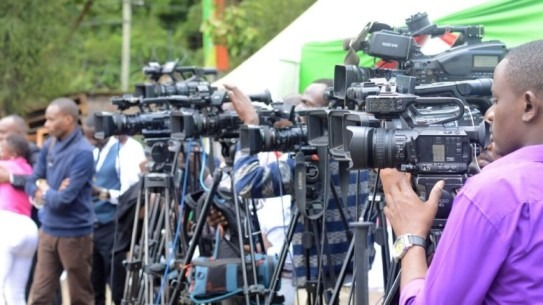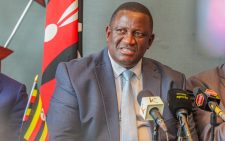State capture of media elite bad for democracy

Davinder Lamba wears the scars of his past battles like a badge of honour. The activist has spent much of his life fighting injustice, exposing corruption and confronting excesses of governments. He did not start yesterday.
Lamba was in 1969 suspended indefinitely from the University of Nairobi, where he was studying architecture, for organising a protest against the cancellation of a public lecture by Jaramogi Oginga Odinga. Jaramogi had differed with President Jomo Kenyatta, resigned as Vice-President and founded the Kenya People’s Union.
He was a checked man. It was therefore audacious for Lamba and his fellow student leaders to invite Jaramogi to the university to speak on a very sensitive topic: The Role of Elections in a Democratic Society: The Prospects of Local Government and General Elections in Kenya in a two-party system.
He became the first Kenyan architecture student to pursue a master’s degree in environmental studies at the Toronto-based York University. He would in 1978 found Mazingira Institute, one of the pioneer civil society organisations.
During the 1990 pro-democracy battles with the Moi regime, he was the co-convener of the National Convention Executive Council (NCEC). He has been one of the cogs of the social justice movement and one of the fathers of the civil society.
It was, therefore, no surprise that after his comrade Makau Mutua joined Raila Odinga’s Azimio, he replaced him as the interim chairman of the Kenya Human Rights Commission board. As the leader of Operation Firimbi, an initiative against corruption and land grabbing, Lamba has had his share of enemies at the highest levels of officialdom.
There is no doubt that the civil society has been instrumental in Kenya process of democratisation.
During the Kanu dictatorship, it was a fortress in the struggle for multi-partyism and a new order culminating in the 2010 Constitution.
In fact, the chapters on liberty, integrity and human rights were inspired by intellectuals in the civil society movement.
But lately, the leading intellectuals and fathers of the movement, like Lamba, barely speak out on national conversations touching on causes for which they risked their careers and lives. And it is not because the projects or societies they envisioned have been achieved.
Their voices seem to be fading away because of a sense of frustration, fatigue, betrayal and a new culture of suppression being entrenched by the political elite and, oh yes, a gleeful media that obliterates the intellectualism of civil society.
This is largely due to the unspoken State capture of the media elite. Political and social activism is lately projected as advancement of alien causes driven by fifth columnists.
Kenya doesn’t seem to appreciate the contribution of the likes of Lamba, Willy Mutunga, Muthoni Wanyeki, Ndungi Githuku, Maina Kiai, Pheroze Nowrojee, Cyprian Nyamwamu, Njeri Kabeberi, George Kegoro, Mwalimu Mati, Wachira Maina, Wangari Maathai, Keptah Ombati, Ndung’u Wainana and John Githongo on the country’s governance discourse.
These progressive voices have been sidelined, some even ostracised by governing elites whose activities are rationalised by some individuals in the academy. Nobody reaches out to them. Few editors offer them space.
But it is the role of the media in this dis-empowering campaign that is most disturbing. Media elites stood by as politicians orchestrated the dissent of civil society voices, some of whom abandoned patronising their platforms.
In an ideal situation, the media and civil society should be comrades in arms to advance public good, defend democracy, justice and liberty. The civil society has always been an incubator of ideas which journalists can tap into to inform public debate.
The divorce between the civil society and the media was apparent when State officials led by Deputy President Rigathi Gachagua and Senate Majority leader Aaron Cheruiyot launched a well-coordinated affronts on the Fourth Estate.
The usual progressive stalwarts of freedom did not stick their necks out in defence of the media. We are dangerously on our own.
There are ominous signs of repression from the new administration.
The media must mend its relationship with the civil society.












